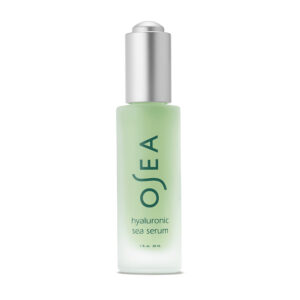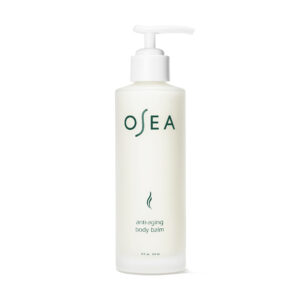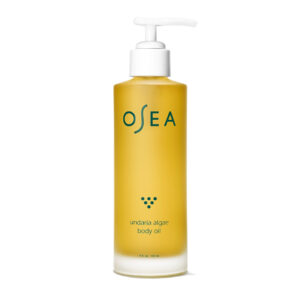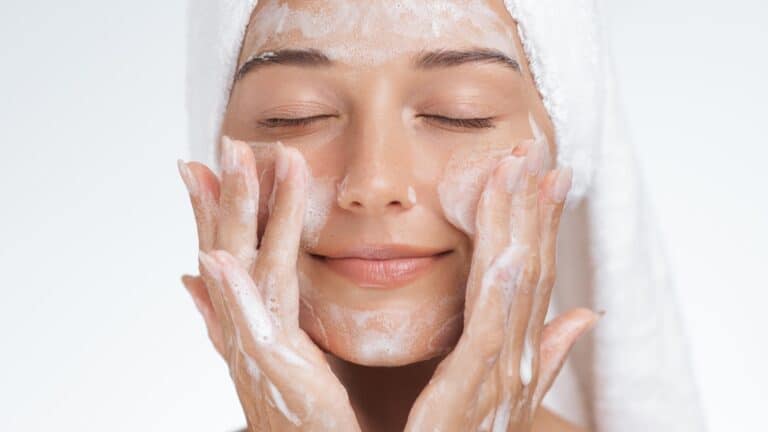There’s so much to look forward to as we transition to warmer weather—from summer travel to beach reads. But what you might not be as enthused about? Your skin.
“Sometimes our skin can look dull or tired looking at the end of a cold season, when damaged skin cells build up on the skin’s surface,” says Kristin Gunn, a celebrity esthetician and owner of Halcyon Skincare and Beaux Medspa.
What impact does the changing seasons have on skin?
Higher temperatures mean higher humidity levels, says Gunn. “Our skin will kick the sebum production into overdrive, leading to the potential for acne and clogged pores,” she explains. “As if that wasn’t enough, warmer weather means pollen and allergies, which leads to skin inflammation.” That can be even worse if you have rosacea, a skin condition marked by facial redness. Also at play: You’re sweating more. This, combined with that uptick in oil and sebum production, is another reason you may experience acne and clogged pores.
In general, skin prefers moderate temps over weather extremes—so don’t be surprised if it takes some time to adjust. “When temperatures change with the seasons, the disruption of [the] pH in our skin is a bit of a shock to the system and it can take a couple weeks to adapt,” Gunn notes.
What can help make the seasonal transition easier?
“Spring is a time to switch out your skincare routine,” Gunn advises. A few things she recommends:
Switch to lightweight products. “In the winter, we use heavier moisturizers and thicker cream cleansers for added moisture. Those can be replaced with lighter versions,” advises Gunn For example: Use a lightweight serum, like a hyaluronic serum and also switch to a more lightweight moisturizer and eye cream. “Look for water-based formulas or something with hyaluronic acid,” she says. Also great: Eye gels. They are “wonderful for summer and can be kept in the fridge as a secret weapon for under-eye bags,” notes Gunn.
Add these to your routine. Toner, if you don’t use one already, to help reset your pH levels and an AHA/BHA exfoliating cleanser. “This will help melt away dead skin cells and help clear the p-acne bacteria,” says Gunn of the cleanser.
Recommit to your sunscreen, says Gunn. We all know how necessary SPF is, but it’s particularly important as the seasons change. “Warmer temps will have you spending more time outside, which can lead to changes in pigmentation from increased sun exposure,” says Gunn, who recommends an SPF of at least 30 to safeguard against UVA and UVB rays.
Drink more water. Another reminder: “Pay special attention to your fluid intake by drinking water throughout the day and eating plenty of fruits and vegetables,” says Gunn. “Your skin will thank you!”
Try this type of facial. Gunn loves a DiamondGlow facial this time of year. An advanced resurfacing treatment, it uses exfoliation, extraction, and the infusion of condition-specific serums to improve skin, she says. “This is a simple and effective skin treatment to exfoliate and then saturate the skin with nourishing serums for a dewy glow,” she says.
…And this body treatment. Along with an uptick in laser hair removal, Gunn says skin tightening treatments with Sciton SkinTyte are also common. “This is very popular on inner thighs, abdomen, and biceps,” she says.
Talk to your esthetician. Overall, there’s no perfect, one-size-fits-all way to improve your skin—each person’s individual needs will vary, says Gunn. “What works for you may be totally different than what works for everyone else,” she says. That’s why talking to your esthetician is important: “Your esthetician can help you navigate the transition with personalized treatments and product recommendations,” advises Gunn.
SOME OF OUR FAVORITE SKINCARE ESSENTIALS
-
 Hyaluronic Sea Serum$88.00
Hyaluronic Sea Serum$88.00 -
 Anti-Aging Body Balm$84.00
Anti-Aging Body Balm$84.00 -
 Undaria Algae® Body Oil$84.00
Undaria Algae® Body Oil$84.00
All products featured on Serendipity are independently selected by our editors. However, when you buy something through our retail links, we may earn an affiliate commission.





